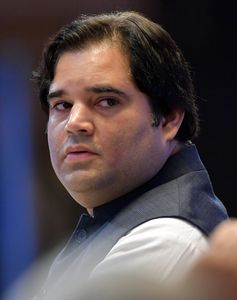The farm laws have been withdrawn, which is a big victory for agitating farmers.
I believe that this is just the beginning of a long struggle to reform Indian agriculture. We need to recast the economics of being a farmer, while addressing long-pending challenges associated with agricultural inputs, yield, distribution, processing, and MSP (minimum support price). We also need to realign incentives to ensure an adaptive cropping pattern as climate change hits India’s farmers.
Has the move dented the strong image of the Modi government?
India has a long history of governments reviewing existing policies to ensure that they are aligned with the interests of key stakeholders. It is heartening to see that the policy has been reviewed keeping farmers’ demands in mind. The focus should be on making the ordinary farmer “strong”, as opposed to categorising any government or its leadership as “strong”.
You have been vocal on farmers’ issues, sometimes even taking a stance different from that of your party.
I believe that it is important to ensure a diversity of thought on important policy matters. I am happy to note that such views have triggered a healthy debate and resulted in outcomes that are conducive to the long-term economic interest of the marginal farmer. We must continue to encourage such diversity, letting a thousand flowers bloom.
Do you think the fear of disturbance in Punjab influenced the government’s decision?
Any review of laws associated with agriculture is always linked to feedback from the farmers themselves. It would be unkind to disparage the effort of the farmers by linking it to India’s numerous and credible security challenges.
In your letter to the prime minister, you asked for a law on MSP (minimum support price). Is a legal guarantee feasible?
Yes, a legal guarantee is a feasible option on MSP; it will certainly take the debate on agricultural policy in a different direction, one focused on scaling up agricultural cooperatives, to correct for excesses in existing procurement networks and to make our farmers competitive for exports.
If India can create giants like Amul in dairy, why can’t our farmers compete with Brazil and China?
We already have one-third of all the arable area in the Asia Pacific; all that is needed is the government to focus on making the APMC (Agricultural Produce & Livestock Market Committee) network stronger and providing investments to fix irrigation and cold storage.
Has the reform process in agriculture been halted with the repeal of these laws?
Not really. However, a clear marker has been put down by India’s farmers: A push towards restructuring the agricultural market towards a contracting system—while offering no backstop in prices or resulting incentives/infrastructure—will not do.
The government cannot solve the agricultural crisis by giving it on a PPP (public-private partnership) basis to the private sector. It will have to do the same as other countries do—invest in mechanisation, in enhancing the cold storage network, in doing the hard ground work of building at scale agricultural cooperatives and finally, pursuing trade deals that give importance to the lot of the Indian farmer over all else.
How will the repeal of laws impact the upcoming elections?
I think that the question of solving the agricultural crisis, for India’s marginal farmers, is above politics. Any short-term skew in voting patterns is a small matter in a generational movement.


